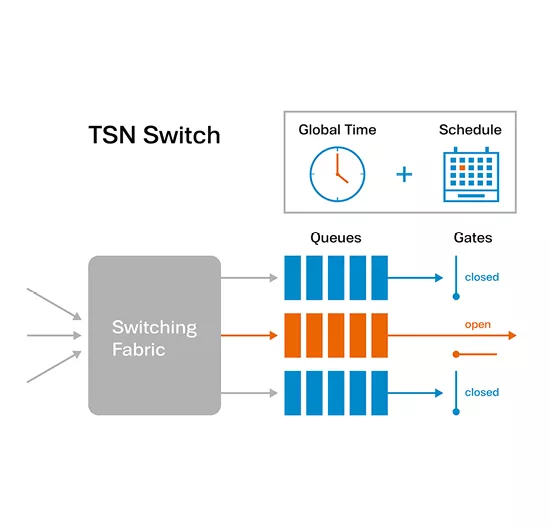Time-Sensitive Networking (TSN) is a set of IEEE 802 Ethernet sub-standards that are defined by the IEEE TSN task group. These standards enable deterministic real-time communication over Ethernet.

TSN achieves determinism over Ethernet by using time synchronization and a schedule which is shared between network components. By defining queues based on time, Time-Sensitive Networking ensures a bounded maximum latency for scheduled traffic through switched networks. This means that in a TSN network, latency of critical scheduled communication is guaranteed.
In control applications with strict deterministic requirements, such as those found in the automotive, industrial, aerospace and space domains, Time-Sensitive Networking offers a way to send critical traffic over a standard Ethernet infrastructure.
This enables the convergence of all traffic classes and multiple applications in one network. In practice this means that the functionality of standard Ethernet is extended so that:

- Message latency is guaranteed through switched networks
- Critical and non-critical traffic can be converged in one network
- Higher layer protocols can share the network infrastructure
- Real-time control can be extended away from the operations area
- Sub-systems can be integrated more easily
- Components can be added without network or equipment alterations
- Network faults can be diagnosed and repaired faster

